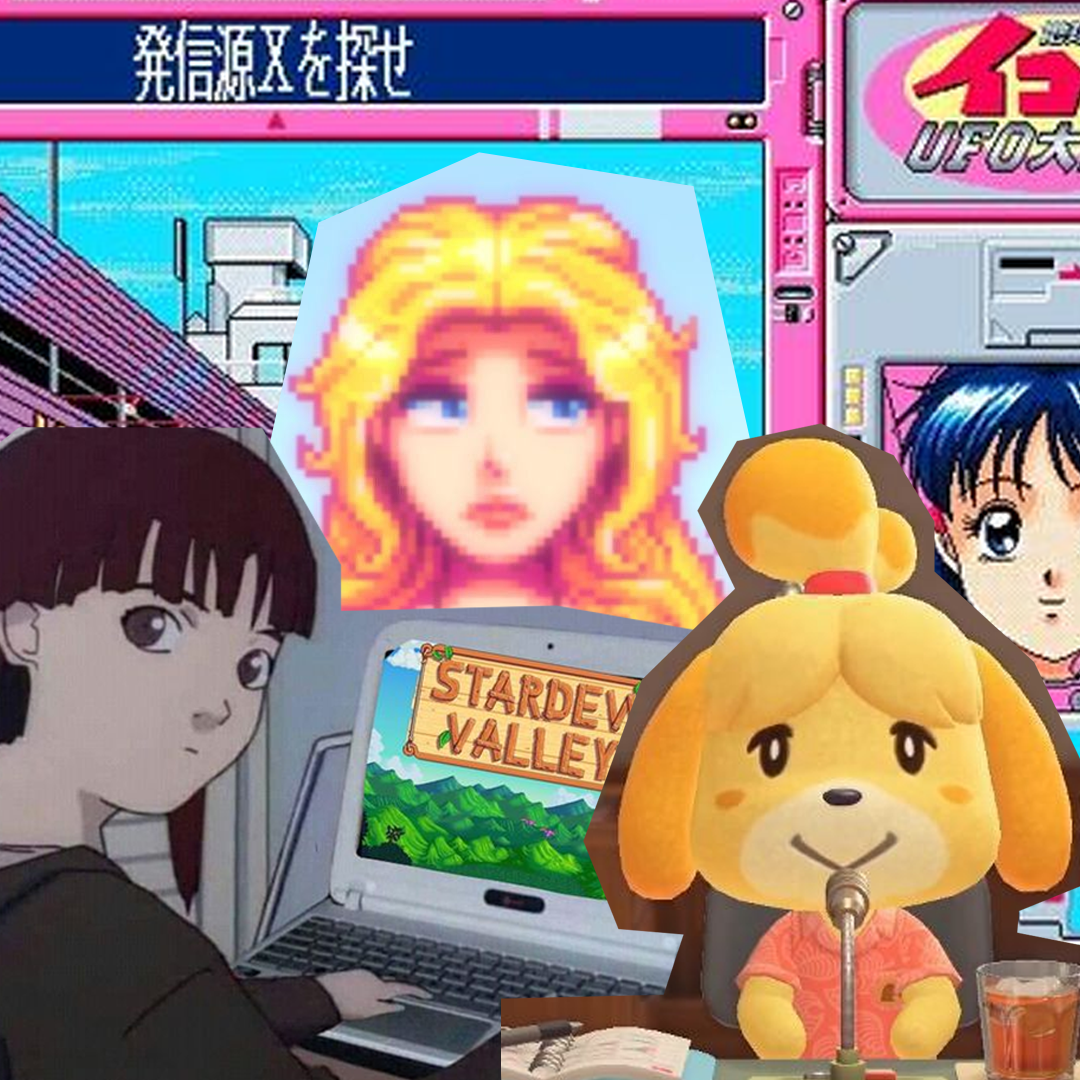Cosy Gaming: Infantilising Or Anti-Capitalist?
Words: Eleanor Forrest
Make it stand out
Cosy gamer girl is the digital sister of the literary girl aesthetic. She’s a modern day Jane Austen, if Jane had a Nintendo Switch. In the same way that the lit girl lights her candles and spends hours reading by her window, the cosy gamer boots up her PC and turns on her mushroom desk lamp, removing the ladder from her Sim’s swimming pool.
Cosy gaming is exactly what you think it would be. It’s any video game that is low stress, low stakes game and usually involves - but is not limited to - a range of farm, home and community related tasks that the player completes in order to progress the game. Set to calming, instrumental soundtracks, these cosy games sometimes explore complex themes, while other times it’s the regular commitment to completing in-game tasks that brings players in.
The cosy gaming trend has been on the rise since video games such as Animal Crossing and Spiritfarer have grown in popularity, with the 2019 latter marketing itself as a “cosy management game about dying”. Fast forward a few years and a global pandemic later, and the signature characteristics of the cosy gaming trend can be found in both a myriad of games and the desk set-ups built around the trend. Think forest green mechanical keyboards and warm toned lamps, usually in the shape of an animal, plant, vegetable or piece of food. Yet at the core of cosy gaming lies an invocation of themes of safety, security and refuge that implies a dissatisfaction with the reality of our daily lives.
Cosy gaming is a shift away from the “seriousness” that professional culture often requires from us, and that previous trends, such as hustle culture, have promoted. When the working landscape looks increasingly bleak, with our hours of work increasing and our wages reaping smaller rewards, the question of ‘why bother’ trying to climb the greasy career ladder surfaces. This move to the slow lane as a whole has been a growing trend with millennials and women in particular, an embrace of the soft life.
“This prioritisation of adorable nostalgia in game production, game play and game marketing runs the risk of infantilising women, from both outside and within the video game community.”
Along with the desire to escape the here and now, the aesthetic theme of this trend - prioritising cute, sweet, soft and safe imagery - embraces a return to our youth. And the fact we’re all economically active compared to the gaming days of our childhoods means we actually have the agency to embrace cuteness all the more. Yet this prioritisation of adorable nostalgia in game production, game play and game marketing runs the risk of infantilising women, from both outside and within the video game community.
The cosy gaming trend is a buttress to the controversial ‘gamer girl’ moniker, which has historically been used to discredit or undermine women as not “real” gamers. The low stakes games that birthed the cosy gaming trend is used as evidence of invalidity by those who perceive competition and action games as the definition of gaming. However the issue feels more to do with women taking up space in a historically male-dominated world. This classification of what is and isn’t a real game is, essentially, a childish method of undermining people who don’t toe a perceived line.
In a world of higher costs and smaller gains, the cosy gaming trend offers a method of weathering the storm. By being active in this trend many of us gain the reset we need to return to the reality we’ve increasingly become dissatisfied and disinterested with and that we increasingly refuse to engage with any more than we have to. As we come home from work and shed the 9-5 from our shoulders, we create boundaries between our working culture and our need to self soothe and carve time to embrace prioritising our own mental health.


